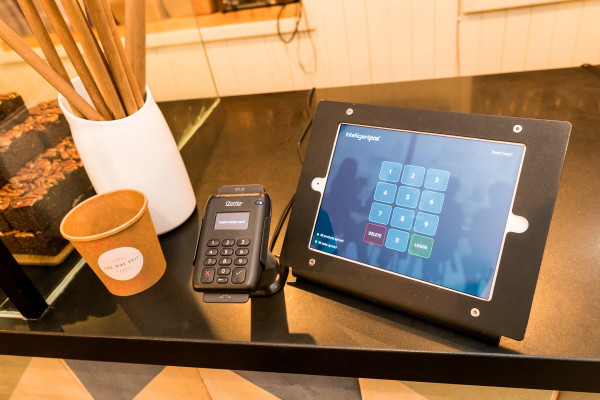
The strong climate for tech IPOs at the moment is leading yet more mature startups to set up their own plans to list, and the latest development on that front is coming out Sweden. iZettle, the payments and small business financial services startup that is often referred to as the “Square of Europe,” with some 413,000 business customers, today confirmed plans to list on Nasdaq in Stockholm. The company plans to raise 2 billion Swedish kronor ($227 million at current rates), giving it an estimated valuation of about SEK10 billion ($1.1 billion).
Jacob deGeer, iZettle’s co-founder and CEO, said in an interview that the plan is to use the proceeds to “execute on our ambitious growth strategy” both by continuing to serve small and medium businesses but also by turning its focus also to larger merchants and other companies in Europe and Latin America, the two markets where iZettle is currently active.
The company is currently operating at a loss, but it’s growing quickly with that loss narrowing. In its prospectus, iZettle said it would consolidated net revenue (gross revenue less interchange and card scheme fees) growth of at least 40 percent annually, with profit — specifically, positive consolidated Ebitda — “by the year ended December 31, 2020.”
“Our growth is driven by two factors,” DeGeer said in an email interview, “an increase in the number of active users and improved user engagement. Our strategy going forward is to grow our merchant base in existing markets as well as shift the mix towards slightly larger merchants, though our focus will continue to remain on small businesses.”
iZettle notes that the listing would happen sometime in 2018 but has not yet specified an exact date.
Along with the IPO announcement, iZettle has published its most up-to-date financials, which confirm that the company is still operating at a loss, but with that margin shrinking as its revenues continue to grow. In the first three months of 2018, the company reported negative earnings before tax, depreciation and amortization of SEK73 million ($8.3 million), slightly narrower than its negative Ebitda of SEK78 million ($8.8 million). More details on its financials below.
iZettle’s announcement puts to rest IPO speculation that has been swirling around for a while now, which reached a crescendo pitch last week. It also comes less than five months after the company raised its last funding — $47 million at a $950 million valuation.
A number of strong tech IPOs so far this year point to a sympathetic climate for more to list, rather than stay private and raise more growth funds that way. “We were founded eight years ago and have grown from a start-up to a mature fintech company,” DeGeer said. “Our shareholders and board believe that it is now an appropriate time to broaden the shareholder base and list the company. We believe that the listing will support our continued growth, our strategy and provide us with improved access to capital markets.”
Similar to Square, iZettle started out life as a service for small businesses and sole traders to take card payments by turning their mobile devices into card readers, taking a cut on each transaction, before later expanding from that into a wider range of services to help those people run other aspects of their businesses, from inventory management and ordering through to accounting and taking out business loans, and most recently to helping businesses build out e-commerce operations online, beyond the physical point of sale.
Some $36 million of the funding that it has raised — around $235 million in total to-date — has also been used to look into newer areas of tech, specifically artificial intelligence, and how that can be applied both to helping iZettle run its business and develop new products for its customers.
So far, the company has been growing strong, but despite the push into multiple alternative revenue streams, the bulk of its revenues remain in payments. In the first three months of this year, iZettle reported gross revenues of SEK258 million ($29 million), versus SEK187 million for the same period a year ago. Of the SEK258 million, SEK209 million came from transactions, SEK31 million came from hardware and only SEK18 million came from software and services. “In the long term, the Company targets a consolidated Ebitda net margin (defined as Ebitda as a percentage of Net revenue) of 30-35 percent,” the company notes.


